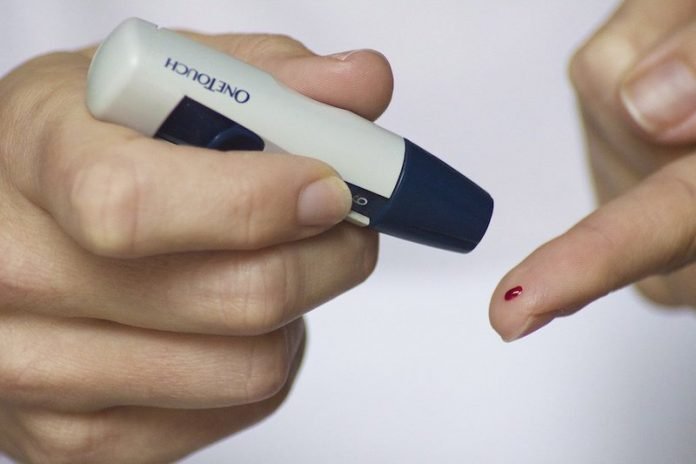
Scientists from the University of Alabama found that a risk score based on a gene map predicted the likelihood of high blood pressure leading to heart problems or stroke in people with Type 2 diabetes.
This tool may be especially useful in guiding treatment for people who are newly diagnosed with Type 2 diabetes or for those with prediabetes.
The research is published in Hypertension and was conducted by Pankaj Arora et al.
Previous research has confirmed adults with Type 2 diabetes are twice as likely to have a heart attack or stroke than people who do not have Type 2 diabetes.
Various measures of health status, such as blood pressure, cholesterol and blood sugar levels, are commonly used to determine a person’s risk for developing heart disease.
In this study, the team explored whether genetic variants linked with high blood pressure are also linked to later heart disease or stroke for people with Type 2 diabetes and used that information to determine a risk score.
They assessed the health records of 6,335 participants in the Action to Control Cardiovascular Risk in Diabetes (ACCORD) trial database for whom genetic data were available.
A genetic variant map of more than 1,000 common genetic variants known to affect blood pressure was compared to the DNA of the study participants to determine participants’ genetic risk.
More matches among the participant’s DNA and the map of known blood pressure genetic variants equated to a higher genetic risk score.
Researchers found that the genetic risk score identified study participants with a higher risk of cardiovascular events:
For people with higher than average genetic risk scores, each degree higher was linked to a 12% higher risk of heart disease or stroke events.
The association of genetic risk with cardiovascular events was the same even if participants were taking medicines to manage blood sugar levels.
Further evaluation of genetic risk scores in people who do not have Type 2 diabetes is needed to be able to apply these findings more broadly.
The team also noted the findings of differences in individuals’ genetic risk scores for high blood pressure did not entirely explain why intensive glycemic control (aggressive treatment with insulin, medications, diet and exercise) did not appear to have a heart benefit for people with long-standing Type 2 diabetes.
However, a genetic risk score may be helpful for people newly diagnosed with Type 2 diabetes to identify who should have more intense lifestyle changes, such as changes in diet and exercise, and more aggressive management of weight, blood pressure and smoking cessation.
Sign up for our newsletter for more information about this topic.
If you care about heart health, please read studies about diet that could help reverse heart failure without surgeries, and an avocado per week keeps your heart doctor away.
For more information about diabetes, please see recent studies about new drugs to treat diabetes, metabolic syndrome, and results showing heavy cannabis use may decrease incidence of diabetes.
Copyright © 2022 Knowridge Science Report. All rights reserved.



